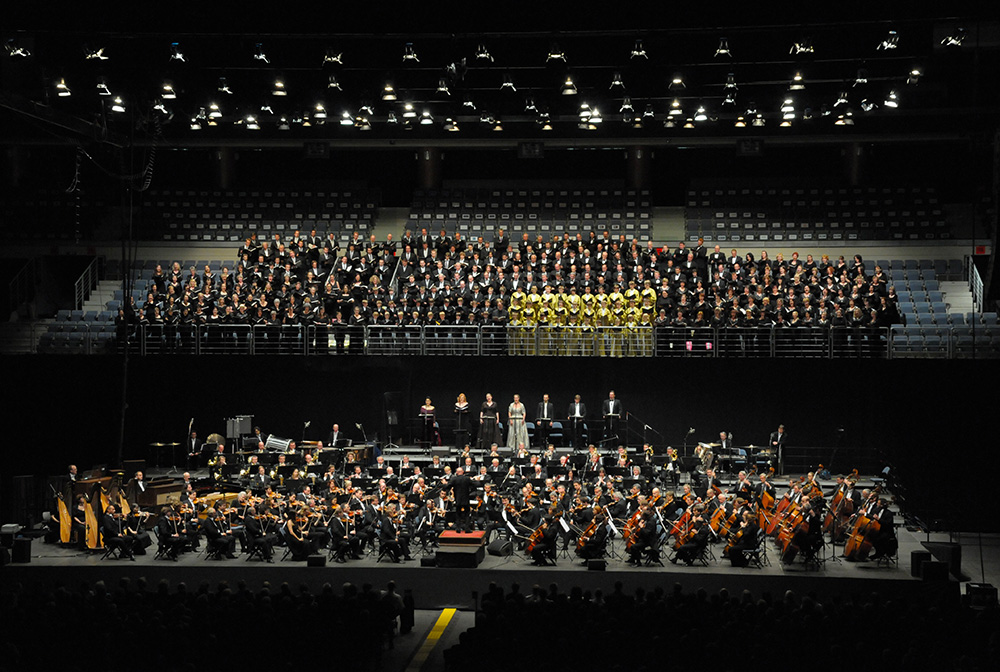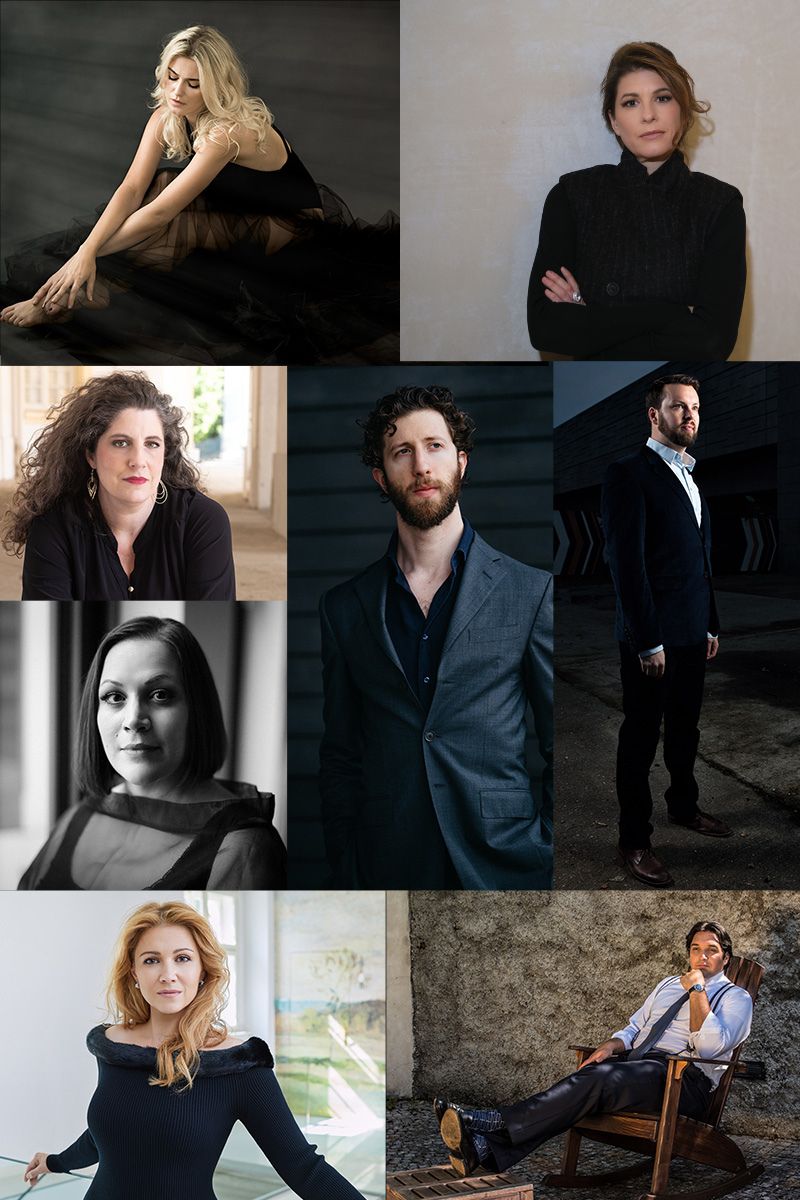Symphony of a Thousand
Programme
- Gustav Mahler: Symphony No. 8 in E flat major “Symphony of a Thousand”
Performers
- Czech Philharmonic
- Semyon Bychkov – conductor
- Czech Philharmonic Choir Brno
- Joel Hána – choirmaster
- Prague Philharmonic Choir
- Lukáš Vasilek – chorusmaster
- Prague Philharmonic Children’s Choir
- Jiří Chvála – choirmaster
- Sarah Wegener – soprano
- Kateřina Kněžíková – soprano
- Miriam Kutrowatz – soprano
- Stefanie Irányi – mezzo-soprano
- Jennifer Johnston – mezzo-soprano
- David Butt Philip – tenor
- Adam Plachetka – baritone
- David Leigh – bass
The 80th edition of the Prague Spring will culminate in a performance of arguably the largest-scale work in the classical concert repertoire. Symphony No. 8 by Gustav Mahler (1860–1911) for eight soloists, two mixed choirs, children’s choir and a vast orchestra with organ earned the subtitle “Symphony of a Thousand”. “Try to imagine the whole universe beginning to ring and resound. There are no longer human voices, but planets and suns revolving,” wrote Gustav Mahler shortly after completing the work. The mammoth task to conduct the Czech Philharmonic in this full-length work was entrusted to Semyon Bychkov, who is regarded as one of the greatest Mahler conductors on the scene today. It was with a performance of Mahler’s Symphony No. 2 that he assumed the post of Chief Conductor and Music Director of the Czech Philharmonic in 2018. He states the following: “Mahler is a very interesting case because, for the rest of the world, Mahler happens to be an Austrian composer whereas, for me and my colleagues in the Czech Philharmonic, this is Czech music.” The performance of Mahler’s magnum opus with eight stellar vocal artists and three of the finest Czech choirs promises to be the true zenith of the Prague Spring 2025.

“I do not think that I have ever worked under such a feeling of compulsion; it was like a lightning vision – I saw the whole piece immediately before my eyes and only needed to write it down, as though it were being dictated to me,’ Gustav Mahler told music historian Richard Specht. He created the colossal score for the Eighth over a period of ten weeks, working, according to his wife Alma, “as if in a fever”. The evening-length symphony is monumental not only for its cast list and instrumental lineup, but also for the depth of its meaning; at the same time it is also revolutionary from a formal perspective. Despite its length it only has two extensive parts. In the first part Mahler wrote a musical setting for the Latin hymn Veni creator spiritus [Come, Holy Ghost, Creator, come]; in the second part he set to music one of the most important texts of world literature – the philosophical final scene from Faust by Johann Wolfgang Goethe. In musical terms, both movements are thematically linked; ideologically they are unified by the idea of redemption through the power of love. In fact, towards the very end, Mahler constructed an uplifting, wonderfully ornate melody to the words “eternal love”.
The “Symphony of a Thousand” was the last of the composer’s works premiered during his lifetime. “In my opinion, that evening in September 1910 was the culmination of Mahler’s life, moreover, none of those present, performers and audience alike, would ever forget it,” stated conductor Bruno Walter, Mahler’s pupil and close colleague, remembering the world premiere of the Eighth Symphony. In the auditorium of Munich’s Neue Musik-Festhalle sat such eminent figures as composers Richard Strauss, Camille Saint-Saëns and Anton Webern, conductor Leopold Stokowski, who six years later conducted the American premiere of the work, and writer Thomas Mann. The latter, greatly moved by the piece, wrote Mahler a letter, in which he described him as “a man who, as I believe, expresses the art of our time in its profoundest and most sacred form”. Performances of Mahler’s Eighth always make for truly exceptional occasions to this day.
The ensemble of soloists at this Prague Spring concert comprises exceptional vocal artists, among them two superb Mahler singers: Sarah Wegener, who has sung the Eighth under conductors Kirill Petrenko, Kent Nagano and James Conlon, and Gramophone Award-winner Jennifer Johnston, who performed Mahler’s Second and Third Symphonies with the Royal Concertgebouw Orchestra and Klaus Mäkelä, and with the Cleveland Orchestra and the Vienna Philharmonic under Franz Welser-Möst. The tenor part will be sung by British vocal star David Butt Philip, who has given debuts at Covent Garden, the Vienna and Bavarian State Operas and New York’s Metropolitan Opera. The cast also includes two stellar Czech singers, Kateřina Kněžíková and Adam Plachetka.








